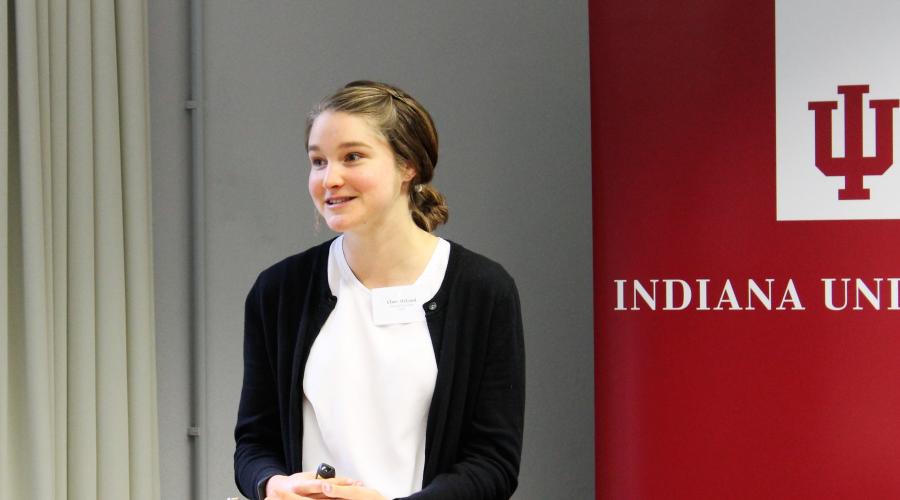
Clare McLeod
“Humbling. Energizing. Inspiring.”
After two days of hearing fellow delegates present their papers, presenting my own paper, and engaging in the thoughtful dialogue that followed each panel, these three words, out of the many I could have chosen, were the three I shared.
At the end of the conference, the primary organizer – Karen Bravo from the Robert H. McKinney School of Law at Indiana University – asked each delegate to reflect and share the three words that best described their experience at the conference. Responses ranged from challenging to eye-opening to self-evaluative; all reflected the deep impact of the conference.
In January 2018, I submitted an abstract to a call for papers surrounding the topic of slavery. The Slavery: Past, Present, and Future Global Conference Series, organized by a handful of academics, connects writers, researchers, thinkers, and activists from across the globe. The third meeting would take place in Berlin, Germany in July 2018.
After my abstract was accepted, I was fortunate and grateful to receive an International Travel Grant from the ILR School to cover the cost of airfare.
At the third meeting of this conference series, delegates – including law professors, economics professors, executive directors of non-profits, PhD students, community psychologists, and one undergraduate – gathered to discuss their research or on-the-ground endeavors. Papers covered a wide range of topics: philosophical perspectives on mitigating exploitation, sex trafficking in medieval Europe, and the reclamation of slave burial grounds in the American South – to name a few.
My paper focused on the evolution of labor exploitation and the consumer response in the age of globalization. In my paper, I posit that labor exploitation, in existence since ancient times, can perhaps never fully be eradicated given the socio-economic set-up of our society. However, I give equal attention to the responses from concerned citizens, activists, and consumers who mitigate exploitation through boycotts, trade organizations, and other forms of protest.
My research interest stemmed from an assortment of classes I have taken at ILR – including Labor Economics with Professor Smith, the History of Consumption with Professor Hyman, Labor History with Professor Salvatore, as well as Work, Labor, and Capital in the Global Economy co-taught by Professors Applegate, Batt, Kuruvilla, and Friedman. I owe thanks to these professors and to the many at ILR who support and inspire students’ interests.
Following the conference, I applied to be part of the steering committee for future meetings. I am excited to remain engaged with the delegates I met in Berlin, to begin tackling a new reading list, and to begin organizing for another meeting. Attending this conference in Berlin would not have been possible without my being at ILR – a school that supports students financially, academically, and intellectually